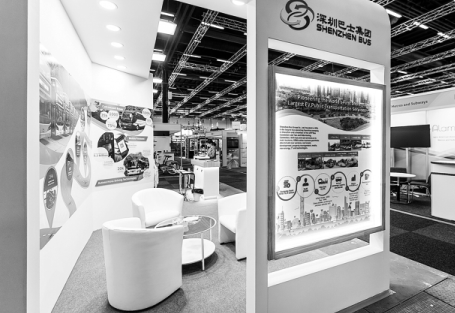Serving world with high-tech, green solutions
With ops in Germany, France, UK... Shenzhen Bus ramps up electrification for nation, globe
From Redhill in Singapore to the capital transportation system in Bogota, Colombia, Shenzhen Bus Group Co Ltd, the Shenzhen, Guangdong province-based public transportation operator, is exporting Chinese green transportation solutions to the outside world.
The company, which was among the first in China to realize full electrification, now has businesses in Germany, France, Singapore, the United Kingdom, South America, India and many other countries and regions around the world.
Shenzhen Bus realized full electrification of buses in 2017 and that of taxis in 2018. Now, the company can help save energy consumption annually equivalent to 200,000 metric tons of standard coal, cutting carbon dioxide emissions by 570,000 tons and reducing 2,309 tons of emissions of pollutants.
"With contributions in full electrification and energy conservation and pollution reduction, Shenzhen Bus was the first in China to enter the International Association of Public Transport, or UITP. Working with UITP, we established a training center focusing on electrification practices, and since then started bringing our operation and management experience to the outside world," said Ma Zhengyuan, deputy general manager of Shenzhen Bus.
The company has been playing a key role in setting the global industrial criteria since it joined the UITP, and managed to promote its standards of pure electric taxi maintenance and repair, infrastructure, planning, procurement and operation to the rest of the world.
Currently, the three standards have passed UITP expert review and entered the release process.
Ma was elected the chairman on duty of the Taxi and Ride-Hailing Committee of UITP in March.
Apart from UITP, Shenzhen Bus is working with the World Bank on compiling the world's first electrification research report based on the successful cases achieved by the company to offer comprehensive electrification experience.

The booth of Shenzhen Bus Group Co Ltd is seen during the 63rd Global Public Transport Summit in Stockholm, Sweden, in June 2019. CHINA DAILY
It signed a strategic relationship with Electricite de France, one of the world's largest energy producers, in 2019, and started a pilot charging optimization project in Shenzhen.
The expected goal of charging optimization has been initially achieved. The electric utilization rate during the valley period increased from 89.97 percent to 94.97 percent, and no cases of incomplete charging was reported during the period.
With its high-quality and efficient consultation services, Shenzhen Bus in November won the bid of offering consultancy services to Switzerland-based Vitol Group-one of the world's largest energy trading companies, in the project of updating the capital transportation system in Bogota, Colombia, and generated a revenue of nearly 400,000 yuan ($61,920). The cooperation laid a solid foundation for Shenzhen Bus' subsequent development.
Global demand for new energy vehicles is huge. A report from energy research firm BloombergNEF showed that in 2020, the world's NEV sales totaled 3 million units. BNEF estimated that even without new investment and governmental incentives, the world's NEV sales will reach 14 million units by 2025, taking up nearly 70 percent of total new vehicle sales. In Europe, the ratio will be as high as 90 percent.
"COVID-19 has brought many impacts on the robust growth of EV sales in the world, and the impacts were especially significant on the Chinese and the United States markets. However, starting this year, there will be an apparent bounce of EV sales in China and Europe," BNEF China research director Kou Nannan said.
Coming from a major country for EVs, Chinese companies with mature electrification experience like Shenzhen Bus are offering consultation services to various countries and regions.
Shenzhen Bus has been undertaking digital transformation in recent years, which is an important factor leading Shenzhen Bus to its successes overseas. For example, it takes advantage of digital resources to realize more refined, visualized and modernized management, intelligent decision-making, cautious safety management, collaborative operation and personalized service.
"We improve our service quality by making innovations. Based on passenger needs, we launched on-demand services and voice broadcast services during bus transfers. We also provide customized routes to meet different customer demands.
"In addition, we make efforts in low-carbon goal by strengthening research in key areas such as charging piles, intelligent bus terminals and batteries. Specifically, we aim at increasing the operational efficiency of charging piles and improving management capability at bus terminals. We also work with local governments to discuss solutions to attract passengers in green transportation," he said.
Ma said in the future, based on the Belt and Road Initiative, as well as the international situation and the development trends of the public transport industry, Shenzhen Bus will promote its green transportation solutions to more countries and regions around the world.



 Print
Print Mail
Mail

